They say knowledge is power.
But how can you gain knowledge if you already feel powerless when reading all the strategies, jargon, models, case studies, data, and so forth?
Here’s a reality check: no one has ever become a business mogul overnight. It takes what it takes. This entails gruelling hours of dedication, a fair chunk of stubbornness, a good dose of curiosity – but most importantly, it takes knowledge. And not the kind you find skimming through a textbook or snoozing in a lecture hall. I mean real-world, nitty-gritty, in-the-trenches business knowledge.
So what is the best way to learn about business? Practical experience is the ultimate teacher. Get an internship, start a small project, or just work somewhere — anywhere — where business is happening. There’s something magical about being in the mix, seeing the good, the bad, and the ugly up close and personal. You’d be amazed at how much you’ll learn by just doing.
7 Methods to Learn Business
- Formal education
- Business management books and publications
- Online resources
- Networking
- Mentorship and coaching
- Work experience
- Professional development certifications, workshops, and short courses
What is the best way to learn about business?
1. Formal education
Step back into the hallowed halls of formal education, where finance and marketing theories meet practice. While I’m not suggesting you need to go all-in and enrol in a full-time MBA program (though that could be a great move for some), formal education could be as simple as taking a few strategic courses.
This method provides you with a structured approach to learning. It breaks down complex topics into digestible chunks and presents them in a systematic way. You can also gain access to mentors and establish a professional network.
The beauty of formal education lies in its diversity and flexibility. You can choose to learn exactly what you want, how you want it, and when you want it. It’s all about finding the right fit for you and your career goals.
2. Business management books and publications
Books and publications can be a goldmine of insights from successful entrepreneurs, offering frameworks and theories that might just spark your next big idea. But they only paint part of the picture.
The truth is, business isn’t a one-size-fits-all kind of deal. What worked for someone else might not work for you. The world of business is ever-evolving, fueled by innovation and disruptive technologies, and no book can keep pace with that. A publication might be rendered obsolete by the time it hits the shelves
So take these books and publications as supplements, not your main course. They can challenge your thought process, broaden your perspective, and provide food for thought. But it’s your hands-on experience and decision-making skills in the heat of the moment that will truly define your entrepreneurship journey.
Related articles:
How to Write a Simple Business Plan | Australia
How to Start a Small Business in Australia
3. Online resources
In the digital age, learning has transcended beyond the confines of the traditional classroom, paving the way for this revolutionary approach to gaining business knowledge.
For starters, business online resources offer an incredible amount of flexibility. Whether you’re a full-time employee, a freelancer, or a busy parent, you can learn about entrepreneurship and business strategy at your own pace, from the comfort of your own home, or even while sipping a pina colada on a beach (Wi-Fi permitting, of course).
These courses are often designed and delivered by experienced professionals who not only have academic knowledge but also firsthand experience of the business landscape. Their insights and anecdotes can give you a realistic perspective of the challenges and triumphs of running a business.
However, as with everything else in life, online courses are not without their drawbacks. They require immense self-discipline and commitment, as the freedom of learning at your own pace can easily lead to procrastination. Also, not all online courses are created equal – some might offer outdated or generic information, so it’s crucial to do your research before enrolling.
Pro tip
Identify your learning goals. Are you looking for a broad overview of business strategy or a deep dive into entrepreneurship? Check out student reviews and ratings as these can give you a glimpse into the course's effectiveness and whether it delivers on its promises.
4. Networking
Networking is a tad more than just collecting a stack of business cards or getting LinkedIn endorsements.
It’s about building genuine relationships that can boost your business knowledge, offer new perspectives, and perhaps open doors to unexpected opportunities. In other words, make friends before you need them.
Reach out to people both within and outside your industry. Attend industry conferences, sign up for webinars, join LinkedIn groups, or even hang out in relevant Reddit threads. The trick is to be active, engaging, and open to learning from others. Don’t be afraid to ask questions or share your own insights.
Increasing your business volume isn’t just about pushing more products or services. It’s about expanding your reach, accessing new markets, and cultivating relationships that can lead to business growth. Networking opens doors to partnerships, collaborations, and even friendly competition, which can all spur you to step up your “volume game”.
It’s a lot like a domino effect; one connection leads to another, then another. The smallest action can trigger a chain reaction. Imagine you strike up a conversation with someone who introduces you to another person. This new person happens to be in desperate need of the exact service you offer. Boom! A business deal is struck.
Pro tip
The beauty of networking lies in the exchange of ideas and experiences.
5. Mentorship and coaching
A mentor is like a cheat code in the game of business. They’ve been there, done that. They’ve been down the road you’re on and can help you navigate the maze from a bird’s eye view.
Mentorship is about learning the wisdom that comes with experience. Having a mentor can give you a new perspective on your business decisions, help you identify your blind spots, and guide you towards growth. They are your personal sounding board for ideas and a provider of tough love when you need it.
Not quite the same, but equally important is coaching. A business coach is like your personal fitness trainer, but for your business muscles. They’re there to help you set goals, create a plan, and hold you accountable.
“What’s that? You didn’t meet your targets this week? Give me twenty more sales calls!”
It’s their job to push you, challenge you, and dare I say it, make you uncomfortable. Because let’s face it, that’s where real growth happens.
Pro tip
The internet is swarming with these so-called “experts” and “fake business gurus” who have never run a successful business in their life but are more than willing to sell you their “exclusive” course for three easy payments of $999.99. They'll lure you in with flashy cars, luxurious mansions, and the promise of the “good life” – all achieved overnight, of course. Don’t fall for it.
6. Work experience
Again, real business knowledge isn’t acquired overnight and surely not from someone whose only business is selling pipe dreams. It’s built from the ground up, brick by brick, with sweat, tears, and sometimes, a tad bit of blood.
Getting your hands dirty in the trenches of a real business, especially in the volatile world of startups, is arguably the most valuable method to gain business knowledge. There is no replacement for first-hand, practical work experience.
It’s like a real-world MBA where you get to learn and adapt to the dynamics of running a sustainable business. You will encounter real problems, make decisions that have actual consequences, and work with diverse teams – all while learning to navigate the market.
This isn’t just about making sales or profits; it’s about understanding how different aspects of a business come together and how each decision impacts the overall direction of the company. You’ll come out with a wealth of knowledge that no textbook or online course can ever provide.
One thing I recommend is starting your career in a startup where you’re thrown into the deep end – you’re forced to swim, but you learn faster and more effectively than in any other environment. It’s a high-risk, high-reward situation.
While it’s true that startups don’t provide the stability of established companies, they make up for it in terms of growth, learning, and experience. Remember, the goal here isn’t just to earn a paycheck – it’s to learn how real, sustainable business works. And nothing can teach you that better than a startup.
7. Professional development certifications, workshops, and short courses
You might be thinking, “Why should I spend time studying stuff that’s not directly related to my job?”. Believe it or not, dabbling in areas outside your main job role can provide a fresh perspective, ignite new interests, and equip you with a diversified skill set. Stepping outside your comfort zone gives you a profound sense of fulfilment.
These professional development opportunities can provide you with an edge, making you a more rounded and versatile professional. They expose you to new ideas and methodologies, broaden your understanding of different business aspects, and potentially unlock doors to opportunities you never knew existed.
Let’s take the example of a software developer who decided to take a project management course. While his main job didn’t involve managing projects, he was curious and wanted to diversify his skill set. After completing the course, not only did he enhance his understanding of project timelines and team collaboration, but he also found out he had a knack for leading teams. This sparked a new career path for him, eventually leading him to become a successful project manager in a tech company.
Another example is a marketing executive who signed up for a data analytics certification course. Although numbers were not her cup of tea, she found the intersection of data and marketing fascinating. By the end of her course, she was analysing marketing campaigns like a pro, identifying patterns and trends that were invisible to the naked eye before. This new skill set made her a valuable asset to her team.
Why nothing beats real-world entrepreneurship experience
Imagine you’re piloting a plane without ever having left the ground. Sure, you’ve spent countless hours on the simulator, but can you handle the turbulence when it hits? That’s what entrepreneurship experience is like. It’s the turbulence, the sudden drops, and the soaring heights.
Business isn’t a recipe that you can just learn and replicate. It’s not like baking a cake where you mix some ingredients, follow the steps, and voila, you’ve got yourself a cake.
Business experience has a lot at stake; it’s unpredictable; and it’s invaluable.
Entrepreneurship throws you into the unforgiving yet exhilarating world of business, where theory meets practice. It’s where you learn to negotiate deals, handle setbacks, manage people, and take risks. It’s where you witness firsthand the impact of market trends, customer behavior, and competition on your business.
So sure, by all means, soak up the knowledge from those courses and certifications. But remember, nothing will prime you better for success than diving head-first into the real-world experience of business. It’s a rollercoaster ride of challenges and wins, but one thing is for sure – you’ll come out the other side with a wealth of knowledge no classroom can ever provide.
Related articles:
How Foreigners Can Start a Small Business in Australia
Creating an Emergency Management Plan for Your Business
Step-by-Step Guide on Starting a Small Business in Australia
You’ll need a finance arm if you’re starting out in the world of business
Picture yourself as a tiny cog in a machine. While you’re undeniably important to the greater picture, you’re a part that relies on other parts. You turn because other pieces turn, and if they stop, so do you. You’re dependent, not independent. When you’re an employee, that’s the reality.
But when you step into the world of entrepreneurship, you’re no longer just a cog. You become the chief decision-maker. You become the person who decides which pieces fit where, which cogs turn, and how fast or slow they should go. You’re the one calling the shots. The machine is your business. And if you’re looking for your missing piece that has the power to make your money work for you, The Bookkeeping Studio is the perfect fit.
Learn more about how you can improve your financial systems today.


